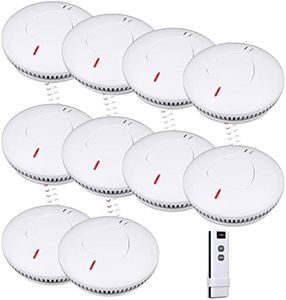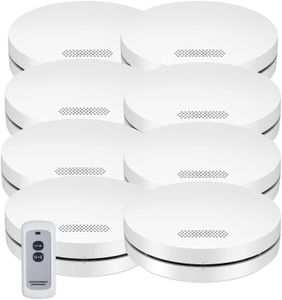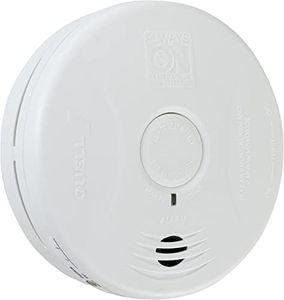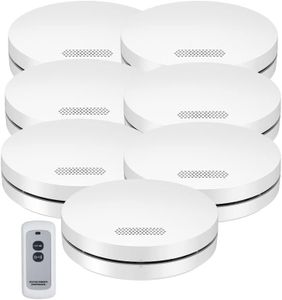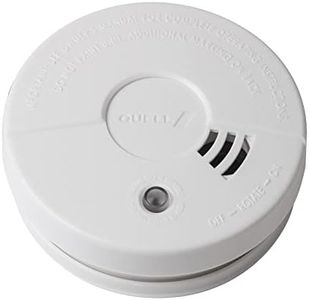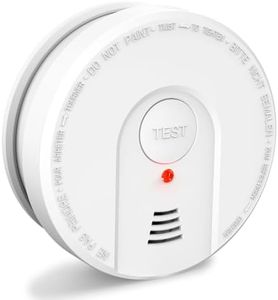We Use CookiesWe use cookies to enhance the security, performance,
functionality and for analytical and promotional activities. By continuing to browse this site you
are agreeing to our privacy policy
10 Best Smart Smoke Detector
From leading brands and best sellers available on the web.By clicking on a link to a third party's website, log data is shared with that third party.
Buying Guide for the Best Smart Smoke Detector
Choosing a smart smoke detector is all about finding a device that fits your living space and makes you feel secure. Traditional smoke detectors only sound an alarm, but smart smoke detectors alert you wherever you are and often come with extra features. When picking the right one, you need to consider how it communicates, what kind of sensors it uses, how it's powered, and how easy it is to use in your daily life. Thinking about your home's specific needs, the size of your house, and your comfort with technology will help you make the best decision.Sensor TypeThe sensor in a smart smoke detector is what actually detects signs of a fire or smoke. The main types are ionization, photoelectric, or a combination of both. Ionization sensors are generally better at detecting fast-flaming fires, while photoelectric sensors are faster at sensing smoldering, smoky fires. Many modern devices include both for better coverage. When choosing, consider your home's environment—if you often cook or have lots of steam, look for a detector less prone to false alarms, such as a photoelectric or dual-sensor model.
ConnectivitySmart smoke detectors can connect to your home network using Wi-Fi, Bluetooth, or sometimes work with specific smart home systems like Zigbee or Z-Wave. This connectivity is important because it determines how the alarm can alert you (phone notifications, integration with other smart devices) and whether it can work even if you’re out of the house. For most users, Wi-Fi offers the widest compatibility and remote alerting, but if you have a smart home setup, you might want to choose a device that's compatible with your system. Think about what devices you already use and if you want everything integrated or prefer a standalone solution.
Power SourceThe power source is crucial for your detector’s reliability. Most detectors run either on batteries, are hardwired into your home’s electrical system, or offer both options. Battery-powered units are easy to install anywhere, but you'll need to change batteries regularly. Hardwired models are more permanent and often have a battery backup for power outages. If you move often or are not comfortable with electrical work, a battery model might be best. If you want minimal maintenance and your home is already wired, a hardwired option with a backup battery offers extra peace of mind.
InterconnectivitySome smoke detectors can link with other units in your home, so if one alarm goes off, they all do. This is especially important for larger or multi-story homes, ensuring everyone is alerted no matter where they are. You’ll find both wireless and wired interconnect options. For bigger spaces or if you want comprehensive coverage, look for this feature, but in smaller apartments, it may be less necessary.
Notification FeaturesSmart smoke detectors can notify you in different ways. Besides the standard alarm sound, they may send alerts to your smartphone, provide voice alerts, or even connect to emergency services. Some offer features like distinguishing between smoke and carbon monoxide warnings. The more notification options, the higher the chance you'll react quickly in an emergency. If you travel often or want extra reassurance, prioritize models that send phone notifications and offer rich alert options.
Ease of Use and MaintenanceA good smart smoke detector should be simple to install, test, and maintain. Features like easy battery replacement, a clear test button, and simple app controls make using and maintaining your detector straightforward. Some units offer self-testing and diagnostics through their apps, which can help you keep things running safely without much effort. If you're not very tech-savvy, seek out models with clear instructions and apps that guide you through the maintenance steps.
